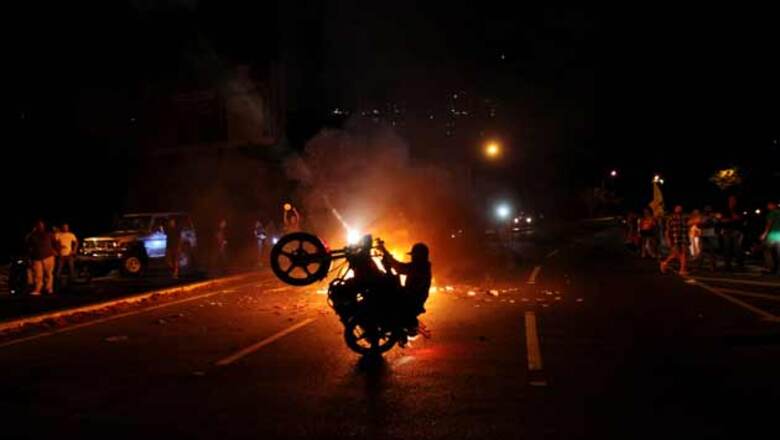
views
Caracas: Venezuela's chief prosecutor said on Tuesday seven people have been killed and 61 injured in protests following presidential elections in which the opposition candidate is demanding a recount. Prosecutor Luisa Ortega did not provide any details about the deaths or injuries or how they occurred.
But she said the seven killed were humble members of the working class, a suggestion that the opposition might be to blame. Chavez's chosen successor Nicolas Maduro was certified the winner of a presidential election yesterday amid questions about his ability to lead after squandering a double-digit lead in the race despite an outpouring of sympathy for his party following Chavez's death.
But protests across the country are posing a challenge even before he deals with Venezuela's mounting problems. Opposition leader Henrique Capriles is demanding a recount of Sunday's election that he narrowly lost.
As the National Electoral Council proclaimed Maduro the victor, people stood on their balconies in Caracas apartment buildings banging pots and pans in protest. Across town, thousands of students briefly clashed with National Guard troops who fired tear gas and plastic bullets. Protests continued on Tuesday.
In the city center, a divided district, government supporters tried to drown out the noise by setting off deafening firecrackers. Some drove trucks with megaphones, shouting pro-Chavista slogans through megaphones. Pedestrians shouted "Chavez lives! Maduro continues!"
Anti-Maduro protests also broke out in other regions, including Chavez's home state of Barinas. Late on Monday, Maduro announced he had met with a newly created "anti-coup" command at the military museum that holds Chavez's remains. He accused opposition protesters of attacking government clinics and the house of electoral council President Tibisay Lucena, without offering details.
He said the government was investigating a possible death. Maduro isn't without advantages. The presidency was made immensely stronger by the charismatic Chavez during his 14 years in power, and the ruling socialists will dominate the National Assembly for at least two more years before new elections are held.
Government leaders and military leaders closed ranks around Maduro yesterday in a series of television appearances to defend the official vote count and accuse Capriles of trying to foment violence. Still, hours before the show of unity, a key Chavista leader showed a flash of discontent.
Diosdado Cabello, the National Assembly president who many consider Maduro's chief rival within the "Chavismo" movement, expressed dismay in two Twitter messages after the electoral council president announced the election results. In the first, he called for a "profound self-criticism" within Chavista ranks. In the second, he wrote: "We should look for our faults under the rocks if we have to."
Diego Moya-Ocampos, an analyst with the London-based consulting firm IHS Global Insight, said members of the ruling socialist party PSUV "realize that Maduro is not the man to guarantee continuity of the Chavista movement." Cabello expressed disbelief at Capriles' strong showing, asking why "sectors of the poor population would vote for their exploiters of old."












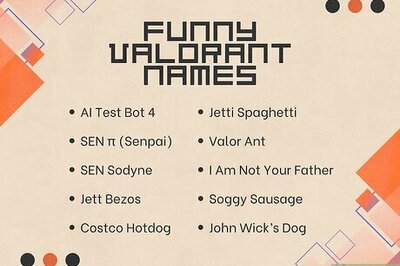
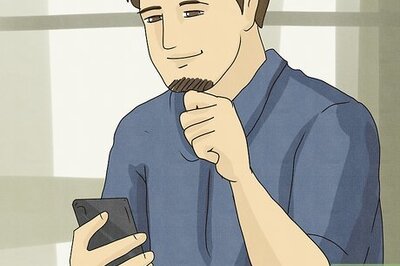
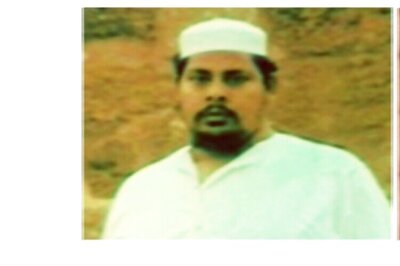
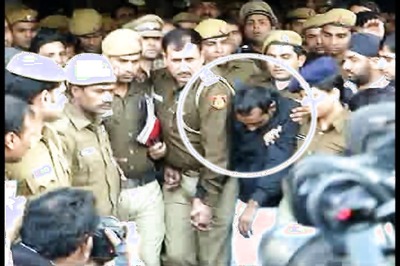


Comments
0 comment